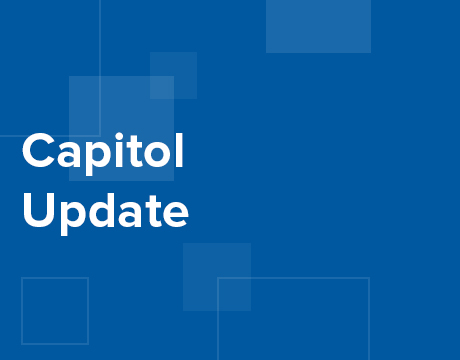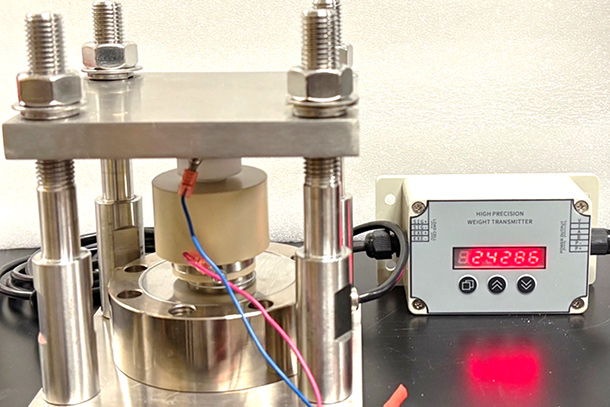WITA and WIIT Host Webinar on COVID-19 and the Medical Supply Chain
WITA and WIIT Host Webinar on COVID-19 and the Medical Supply Chain


The Washington International Trade Association (WITA) and Women in International Trade (WIIT) recently partnered to host a webinar titled “COVID-19 and the Medical Supply Chain.” Panelists discussed the complexity of global supply chains and the resulting challenges faced during the COVID-19 pandemic. The webinar also highlighted the December 2020 report, “Covid-19 Demand Shock and Preparedness Response,” written by Meredith Broadbent, Senior Advisor (Non Resident) at the Center for Strategic and International Studies (CSIS) and a panelist on the webinar.
The panelists briefly discussed the challenges faced during the COVID-19 pandemic as a result of supply chain disruptions. Catherine Mellor, Vice President of International Trade at UPS, noted that the shortages of personal protective equipment (PPE) that were caused by shipping delays are a prime example of “a problem to be solved.” Reliance on China for materials necessary for PPE meant that any delays in the manufacturing of these materials resulted in shortages in the United States—shortages that were particularly evident at the beginning of the pandemic. The significant reduction in air travel impacted supply chains as well; by April 2020, nearly 16,000 passenger jets had been grounded, leading to an 82% reduction in air cargo capacity, said Mellor. Because of this reduction, companies were faced with making decisions about which goods were “most essential.” Non-COVID-related essential goods should still have had a place on those flights, Mellor commented, but there was a period of confusion as companies worked to adjust to these new constraints, leading to further delays.
The pandemic has demonstrated that a secure medical supply chain is a necessity. According to Broadbent, the answer is not wholesale government mandated reshoring—she argues that the Buy American Act and other similar measures will actually lead to higher prices and more shortages. Instead, her report proposes a supplier network with trusted partners with whom the U.S. would develop enhanced relationships. Some requirements for being a member would include commitments to safety and efficacy and similar IP protection and data flows. Partners would commit to transparency in their actions; for example, if export restrictions were to be introduced, there would be clear policies about why they were being implemented and how long the restrictions would last.
The U.S. can be proactive in building trust with trade partners. The rejoining of the World Trade Organization (WTO) is one example, and Broadbent also cited the United States-Mexico-Canada Agreement (USMCA) as a potential platform for supply chain discussions. Mellor noted that the COVID-19 vaccine distribution effort provides an enormous opportunity for the U.S. to take a leadership role and help facilitate conversations around commitment to securing medical supply chain networks.
To view the full webinar, visit WITA’s webinar library here.
The December 2020 report “Covid-19 Demand Shock and Preparedness Response” by Meredith Broadbent can be read in full here.
The panelists briefly discussed the challenges faced during the COVID-19 pandemic as a result of supply chain disruptions. Catherine Mellor, Vice President of International Trade at UPS, noted that the shortages of personal protective equipment (PPE) that were caused by shipping delays are a prime example of “a problem to be solved.” Reliance on China for materials necessary for PPE meant that any delays in the manufacturing of these materials resulted in shortages in the United States—shortages that were particularly evident at the beginning of the pandemic. The significant reduction in air travel impacted supply chains as well; by April 2020, nearly 16,000 passenger jets had been grounded, leading to an 82% reduction in air cargo capacity, said Mellor. Because of this reduction, companies were faced with making decisions about which goods were “most essential.” Non-COVID-related essential goods should still have had a place on those flights, Mellor commented, but there was a period of confusion as companies worked to adjust to these new constraints, leading to further delays.
The pandemic has demonstrated that a secure medical supply chain is a necessity. According to Broadbent, the answer is not wholesale government mandated reshoring—she argues that the Buy American Act and other similar measures will actually lead to higher prices and more shortages. Instead, her report proposes a supplier network with trusted partners with whom the U.S. would develop enhanced relationships. Some requirements for being a member would include commitments to safety and efficacy and similar IP protection and data flows. Partners would commit to transparency in their actions; for example, if export restrictions were to be introduced, there would be clear policies about why they were being implemented and how long the restrictions would last.
The U.S. can be proactive in building trust with trade partners. The rejoining of the World Trade Organization (WTO) is one example, and Broadbent also cited the United States-Mexico-Canada Agreement (USMCA) as a potential platform for supply chain discussions. Mellor noted that the COVID-19 vaccine distribution effort provides an enormous opportunity for the U.S. to take a leadership role and help facilitate conversations around commitment to securing medical supply chain networks.
To view the full webinar, visit WITA’s webinar library here.
The December 2020 report “Covid-19 Demand Shock and Preparedness Response” by Meredith Broadbent can be read in full here.









